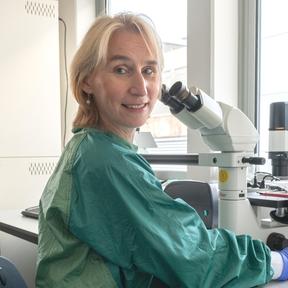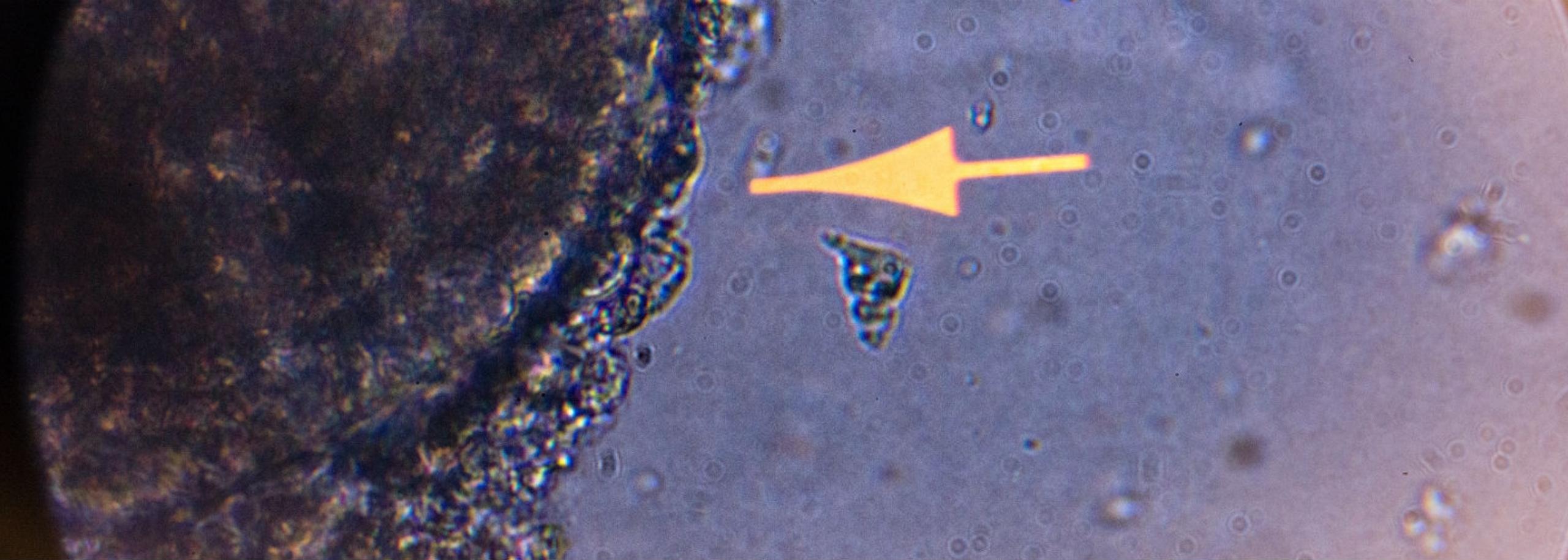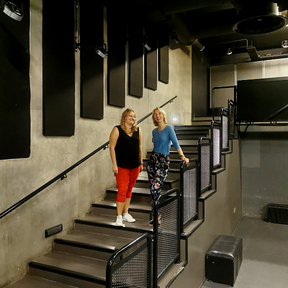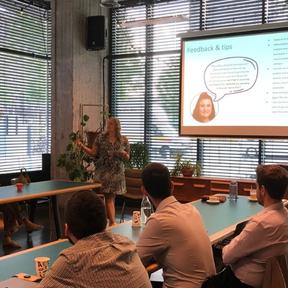In this recurring section “Drijfveren”, scientists explain what motivates them to go against the current and develop animal-free alternatives. This time it is up physician-virologist Katja Wolthers of the Amsterdam UMC – location AMC. Katja is a pioneer in the field of virus research without laboratory animals. She studies the coronavirus, HIV and common cold viruses with the help of organoids, which are mini-organs grown from human cellen.
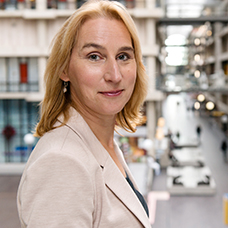
Education without laboratory animals
“I’m a physician, so I have a medical background, and that’ s why I am interested in the way diseases progress in patients. I wanted to help make people better, but I was also very curious about the biology: what happens in patients with diseases? This led me into biomedical research.
I’ve always worked with human cells. I think in Medicine you are less confronted with animal experiments than you are in Biomedical Sciences. We did get anatomy classes, but that was on donated human remains. I also didn’t get the course Laboratory Animal Science taught in medical school. For my research internship, I also wanted to work with patients, rather than mice. I thought working with mice was less interesting and also not fun to do.
I didn’t use laboratory animals during my PhD research either. I was researching the HIV virus and how our immune system is involved. We were fortunate to work with a very motivated group of patients that allowed us to draw their blood with their consent. But at that time I was confronted with the use of laboratory animals by other researchers. I did form an opinion about that at the time.”
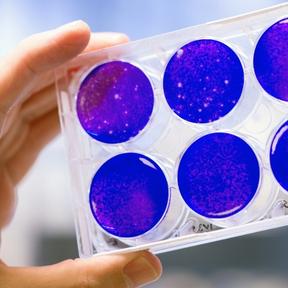
“I made a conscious decision not to do virus research with laboratory animals. This was both an ethical and a scientific decision.”
A long run-up to working with organoids
“I was already working with human cells during my doctoral research. And I continued that in the rest of my research. But in doing so, I ran into some limitations. Namely, cells that we use for virus research are cells that are able to grow very well in the lab, for example cancer cells, or cells derived from monkeys, because monkeys are widely used in virus research. But such cells do not have the properties of healthy human cells. Therefore, there were some questions we could not answer and I was in search of other models. And then I made a conscious decision to avoid using laboratory animals to do this. This was both an ethical and a scientific choice.
I heard about researcher Dr. Hans Clevers, who had used intestinal organoids in his research. That’s where the idea was born to use organoids for virus research. At that time we still had to raise money, and this took quite a long time, from 2010 to 2014 approximately. That is when my first European research network launched, and we came into contact with you guys and through you with the ZonMw program More Knowledge with Fewer Animals. You guys were, like me, enthusiastic about my research and we decided to work together. Thanks to you, we had enough funding to further develop organoids for virus research.”
Inspiration for young researchers
“Together with my ‘partner in crime’ Dasja Pajkrt, I want to transfer our animal-free inspiration to the new generation of researchers. We do this through our European training network, Organovir. This network is aimed at developing organoids for virus research. We work with 15 different partners from different European countries, all of whom bring in young researchers doing PhD research in the field of organoids and virology. Proefdiervrij is also part of this network. We collaborate with research institutions and companies in this network, and this results in efficient research.”
Companies see potential
“We noticed that there is a demand for innovation from companies that is less present in the scientific field. Within virology, researchers sometimes thought, Do we need organoids, we already have laboratory animals anyway? Companies have an economic starting point, and want to develop drugs that work. I think that within virology, disappointingly few drugs have been developed that work against viruses. One of the problems within drug development is that the translation of (mandatory) laboratory animal research to the real-world application is not very good, because only 10% of drugs developed with laboratory animals work in humans. So companies actually lose money on this, and so they are motivated to improve models for testing potential drugs.
However, in the virology research field, this urgency is somewhat less. I think that’ s because people put a lot of faith in outcomes from animal research. There is little doubt about these outcomes. We do have discussions about the translatability, but you do see in the COVID era that once again we take a step back. Researchers still revert back to using monkeys, ferrets or hamsters.”
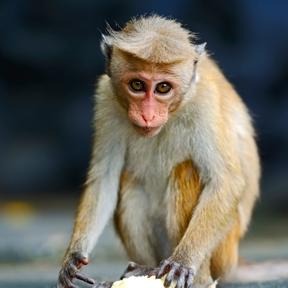
Ban on animal testing for virus research?
“At the same time, COVID also provides a great time for real innovation. We are clearly seeing an increase in the use of organoids within COVID research. And more and more organoids are also being developed for research into viruses for which animal research is not working well, such as viruses that cause diarrhea. Developments in the area of organoids for virus research are moving incredibly fast.
Not quite fast enough yet to ban laboratory animals for virus research, because vaccine development is difficult without laboratory animals. Right now I don’t know how to do that with organoids. But more and more is possible with organoids, and nowadays you can already mimic a part of immune system in these models.”
“If there is going to be a laboratory animal ban, it should be for laboratory animal research for drugs that have already been tested in humans for a long time. This is where we should start.”
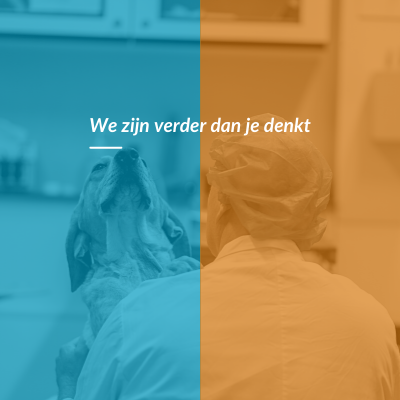
“I am optimistic that we are further along than people think when it comes to animal-free innovations. That is why we also eagerly continue to work on these methods, for example in our next major research project GUTVIBRATIONS. But sometimes I get discouraged because I see that there are still so many laboratory animals used in research. If there is going to be a laboratory animal ban, it should be for laboratory animal research for drugs that have already been tested in humans for a long time. This is where we should start. And that’ s where the ethics committees should be stricter. I certainly think we are on the right track. We’re not there yet, but we’re further along than you think.”
Listen to the entire conversation with Katja in Proefdiervrij the Podcast: below or wherever you like to listen to your podcast.
Katja inspires us, and more importantly, others. She proves that animal-free science has the future. Thank you Katja, for taking the time to answer our questions during the podcast! We wish you all the best with your wonderful work, and together we can increase our impact towards a world without animal testing.
